It’s been more than a week since the Russo-Ukrainian War started.
Whether it has been Russian President Vladimir Putin himself, his cabinet ministers, or the Russian United Nations (UN) Ambassador Vasily Nevenzya, they have been wholly unrepentant when it comes to the unwarranted invasion.
However, in a shocking move on Sunday (28 Feb), the head of the Russian delegation for the United Nations Intergovernmental Panel on Climate Change (IPCC), Oleg Anisimov, apologised for the invasion.
Oleg Anisimov’s Personal Apology
In Dr Anisimov’s words, translated and confirmed by POLITICO, he uttered: “First of all, let me present an apology on behalf of all Russians who were not able to prevent this conflict. All of those who know what is happening fail to find any justification for this attack against Ukraine.”
This brief speech was given at the final session of a two-week virtual meeting to polish up the IPCC’s blockbuster climate change report, the sixth of its edition.
It had stunned many delegates present in the virtual meeting, with one source stating that “everyone ‘in the room’ was really moved”, as they responded to his words in chats or informal conversations.
Dr Anisimov later clarified that this was just his own personal opinion and was by no means representative of his country.
Regardless, Oleg Anisimov is the first public Russian figure to apologise for the invasion, and his statement comes at a great risk to himself too.

After all, at least 1,700 demonstrators have been arrested for the anti-war protests that they incited across 53 cities in Russia, which fully shows the Kremlin government’s attitude towards dissent among its own people.
For the Russian lead delegation though, the IPCC’s importance and the goals that they are working towards cannot be understated.
Dr Anisimov has been a long-standing participant in the IPCC, first joining as an Artic scientist and being one of the lead authors of the earlier reports, before he eventually represented his own country’s delegation.
Currently, Dr Anisimov is working as a scientist at his state’s hydrological institute in St. Petersburg,
Ukraine Delegation’s Plight
Due to the suddenness of Russia’s invasion, Ukrainian delegate Svitlana Krakovska had spoken up about her own country’s plight during the virtual meeting, and passionately too.
One of the delegates recalled Ms Krakovska saying: “Human induced climate change and the war on Ukraine have the same roots, fossil fuels, and our dependence over them.”
At some point, the Ukrainian delegation had been forced to quit on Thursday to seek refuge from bomb shelters.
Witnesses confirmed that she had been absent from the virtual meeting, although she returned for the final sessions to distil the 3,500-page-long report on climate impacts into a crucial 40-page “Summary for Policymakers”.
Ms Krakovska did not make excuses for her absence, declaring that she and her colleague would continue working on the report as long as they had Internet and weren’t under the risk of being bombed.
“We will not surrender in Ukraine,” she told the 195 other delegates, “And we hope the world will not surrender in building a climate-resilient future.”
Towards her assertion, Dr Anisimov lauded their dedication, saying, “Since we are dealing with scientific issues, we have huge admiration for the Ukrainian delegation that was able to still do its work.”
Ms Krakovska has also voiced her dismay that the exceedingly important findings on climate change have been overshadowed by the war.
The Current State of the Climate
Truth to be told, humankind is crippling the Earth’s biodiversity and causing the climate to change immensely.
For instance, Dr Anisimov’s studies in the Arctic regions on thawing permafrost have shown that as the permafrost melts, it releases methane which can accelerate warming trends.
It is even more troublesome, considering that two main culprits of industrial emissions of methane are from the US Permian Basin and Russia’s vast and leaky pipeline network.
The latter pipeline has already caused a great deal of damage to permafrost in Russia’s arctic, wherein it is warming as much as triple of the global average.
Should global temperatures continue to climb by another one degree Celsius, it will have catastrophic effects:
- The Artic ice is disintegrating even faster
- The oceans will become more acidic, which will be to the demise of the marine biodiversity, the corals especially
- Sea levels will continue to rise and flood coastal areas
- Natural disasters will become worse
- Ecosystems are edging towards the brink of collapse
There are more side-effects listed out in the long report, but the main crux, or the obvious conclusion that scientists and researchers have come to is that the upheaval is primarily the result of the burning of fossil fuels.
The IPCC is no longer encouraging actions to be taken; it is urging member states of the United Nations to lower carbon emissions as soon as possible, or else the world will be faced with irreparable consequences.
If you wish to know more about the recent Glasgow Climate Pact, you read it here.
Krakovska: The War and Climate Change Have the Same Roots
With regards to the statement that Ms Krakovska made, she might have genuinely hit the nail on its head in terms of Russia’s motivations for invading Ukraine.
Yes, from Russia’s standpoint, the continuous “eastward expansion” of the North Atlantic Treaty Organisation (NATO) by pulling in the Baltic States, Bulgaria, Romania, Slovakia, Slovenia—all of whom were previously part of the Warsaw Pact or Soviet satellite states is concerning from a security standpoint.
You can watch this video to know more about NATO:
Ukraine is of particular interest to Russia, because if Ukraine joins the Western powers, it means that there is a 2,300-kilometre-wide flatland border that Russia has to defend (highlighted in white below), and it also means that its loyal ally Belarus will be flanked from all three sides.
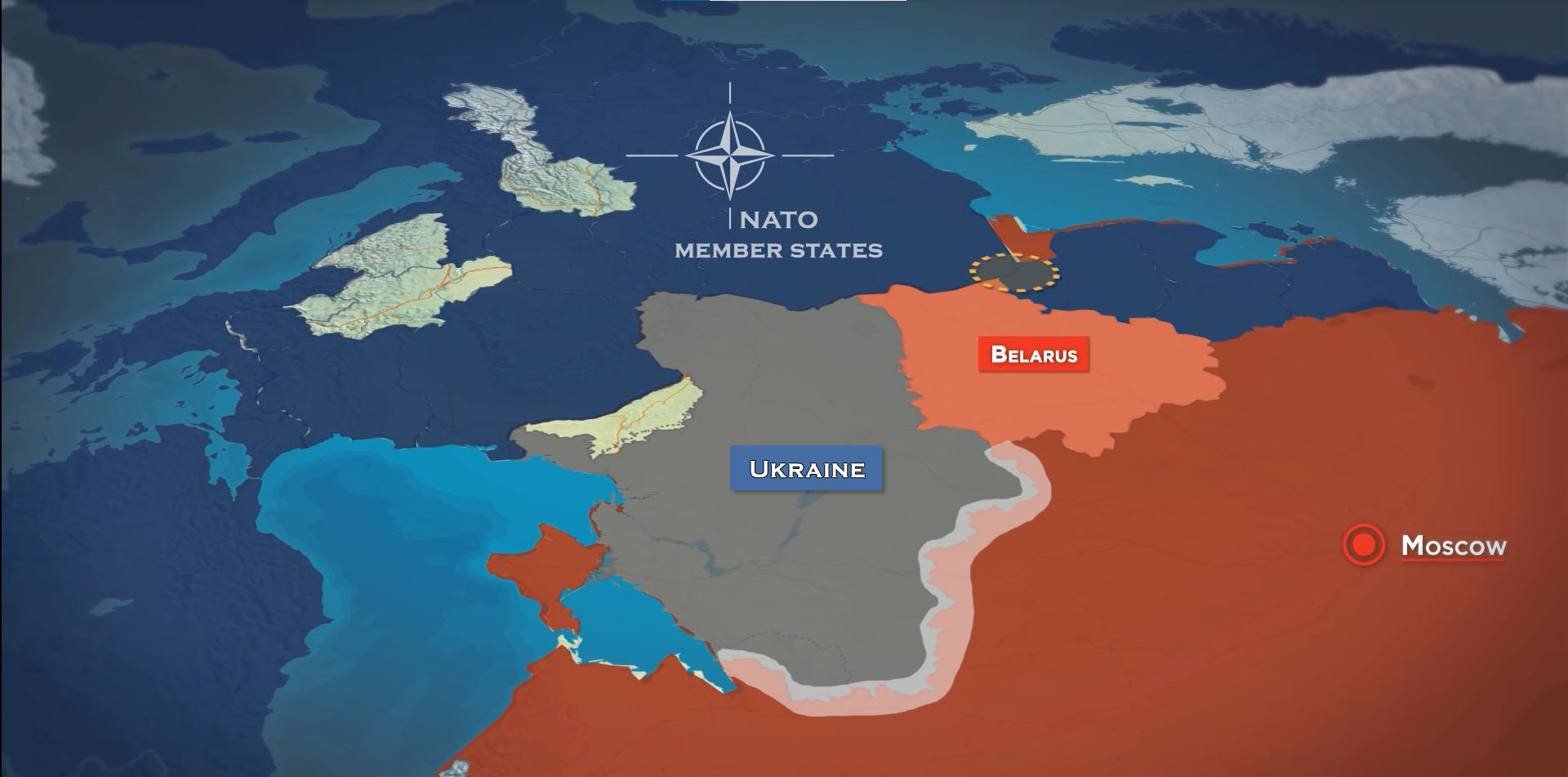
Of course, besides security interests, there are economic reasons involved too.
The Supply of Natural Gases from Russia to Europe
In the European Continent, Russia and the European Union (EU) are heavily reliant on each other in the sense that the economic coalition of countries in the European Union need the natural gases from Russia to survive through the winter.
Just for a brief glimpse into their current dependency, Germany, the fourth largest economy in the world, exports nearly 50% of its natural gases from Russia.
This in turn, allows Russia to greatly profit, such that 35% of the natural gases that it extracts from its energy-rich lands of Shtokman Field and Yamal Field in eastern Russia are sold to the EU.
Despite the collapse of the Soviet Union (USSR), Russia still stands as a superpower today from the energy source lands; it’s a petrol state as much as Saudi Arabia, producing the second highest amount of oil in the world besides the Middle East.
However, the USSR collapsed in 1991 and Ukraine—a region that has always been under Moscow’s control even if you stretch history centuries back—gained independence.
That leads to another issue, and perhaps another critical reason why Ukraine is so important to Russia.
The Energy Pipelines in Ukraine
You see, during the USSR era, energy pipelines were built across Ukraine like a bridge that transported the natural gases from Siberia to the rest of Europe.
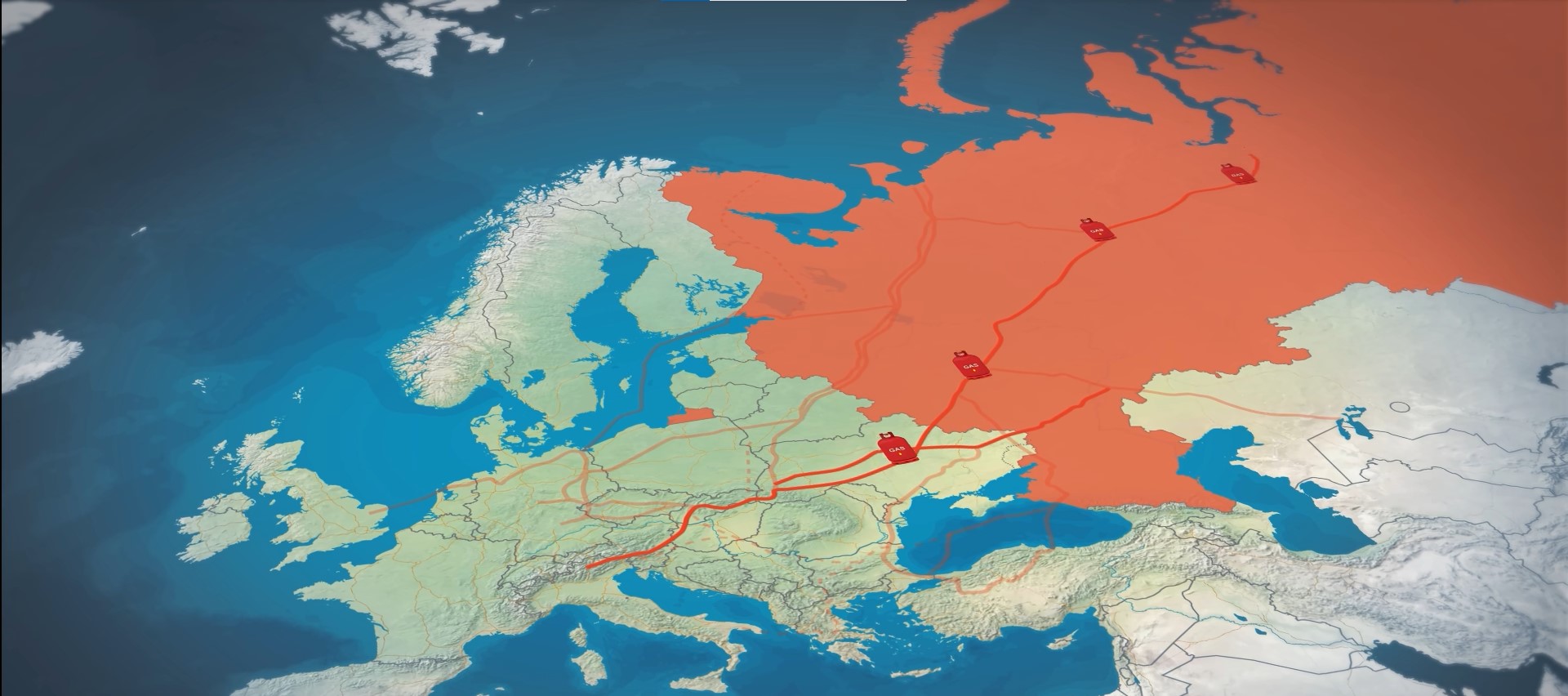
When Ukraine became a sovereign country, it started demanding tariffs by the billions for being a gas bridge for Russia to its European customers.
A hefty price that Russia had no choice but to pay, because there were no other pipelines built back then. Even as late as 2005, 80% of the natural gas exports flowing into Europe were still going through Ukraine.
To reduce its reliance on Ukraine, and even cut off Ukraine completely, Russia started to build Yamal-Europe and Nord Stream pipelines which went through the loyal Belarus to other countries, then Nord Stream II which ran under the Baltic States and straight to Germany.
By 2024, the Kremlin plans to complete the South Stream, Blue Stream, and Turks Stream that run beneath the Black Sea. All of these pipelines completely avoid Ukraine, so as to eventually avoid the billions of tariff losses.
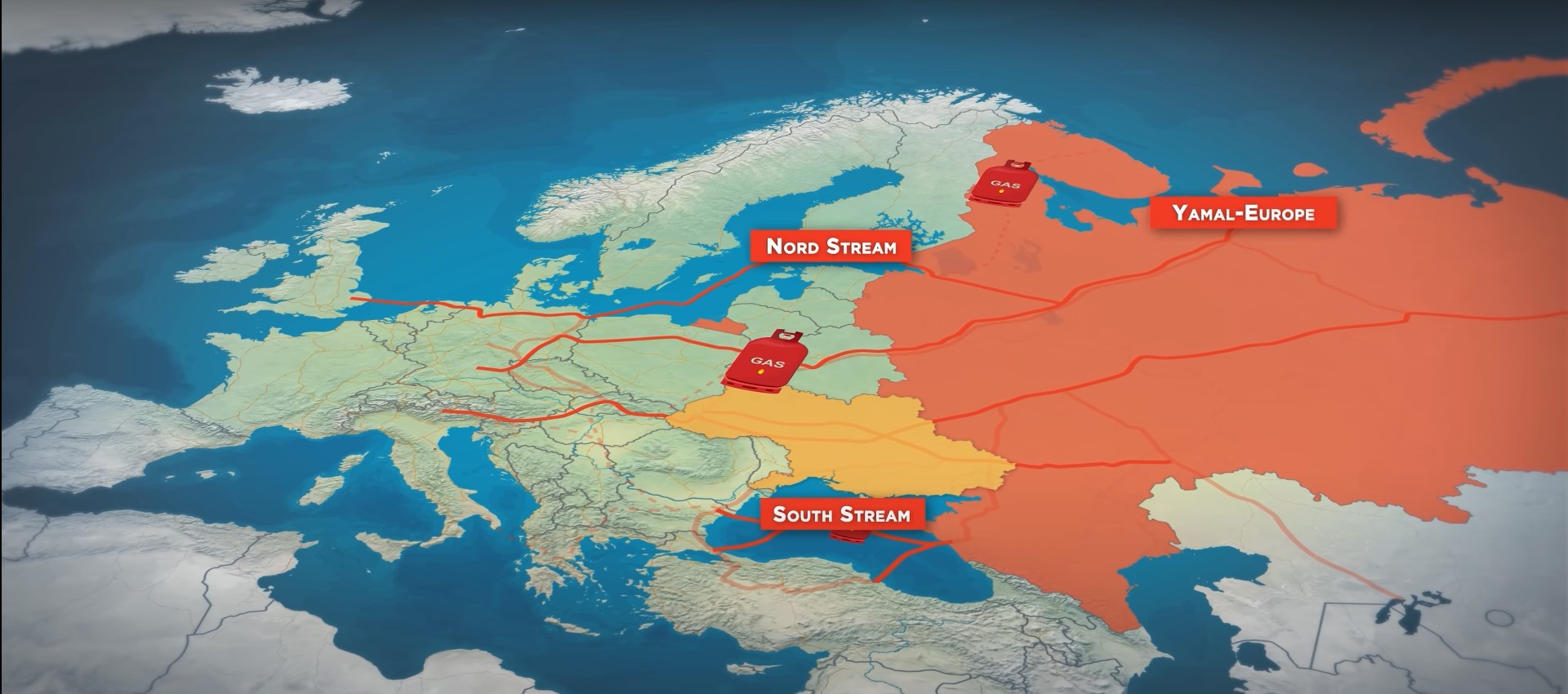
Discovery of New Energy Sources in Ukraine
However, Russia’s contentment with Ukraine remaining neutral in the geopolitical sphere changed in 2012 when it discovered that Southern Ukraine’s special economic zone in the Black Sea may possess 2 trillion worth of natural gas, largely concentrated in the Crimean Peninsula.
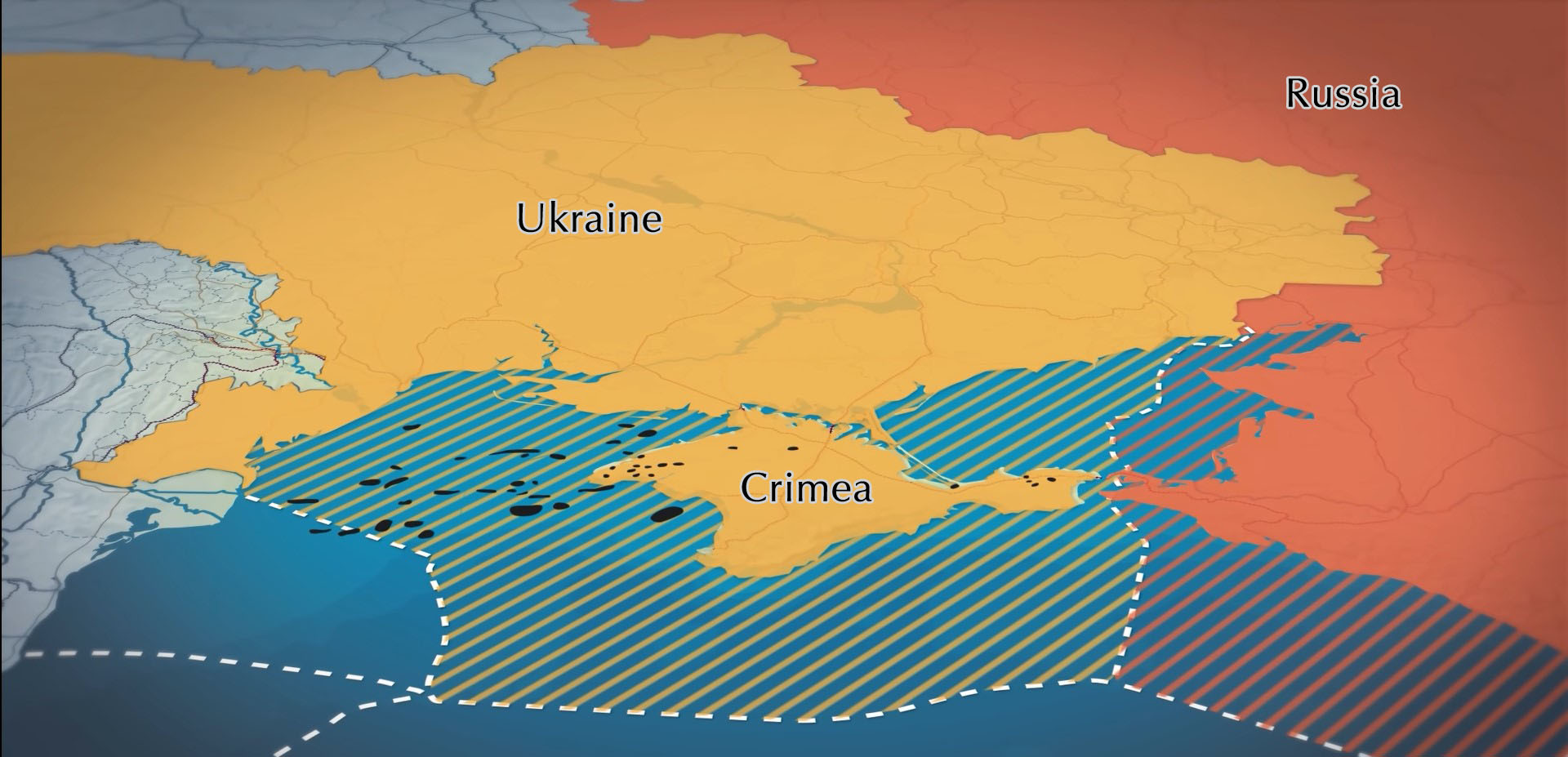
Does the annexation of Crimea in 2014 make more sense now?
Additionally, with the discovery of Shale Gas Deposits in western and eastern Ukraine, Ukraine has technically become the 14th largest country in terms of natural gas reserves, though it lacks the finances to harvest the natural resources in large quantities.
The lack of finances, however, was conveniently solved when Ukraine granted drilling and mining rights to Shell and Exxon. By inviting investors from abroad, it gave them the infrastructure to tap into these resources, which began to seriously threaten Russia’s economic interests.
For the same reason, it probably won’t surprise you anymore when it is said that the Donbas region—namely Donetsk and Lugansk which have recently declared independence from Ukraine—happen to lie on the shale gas deposits.
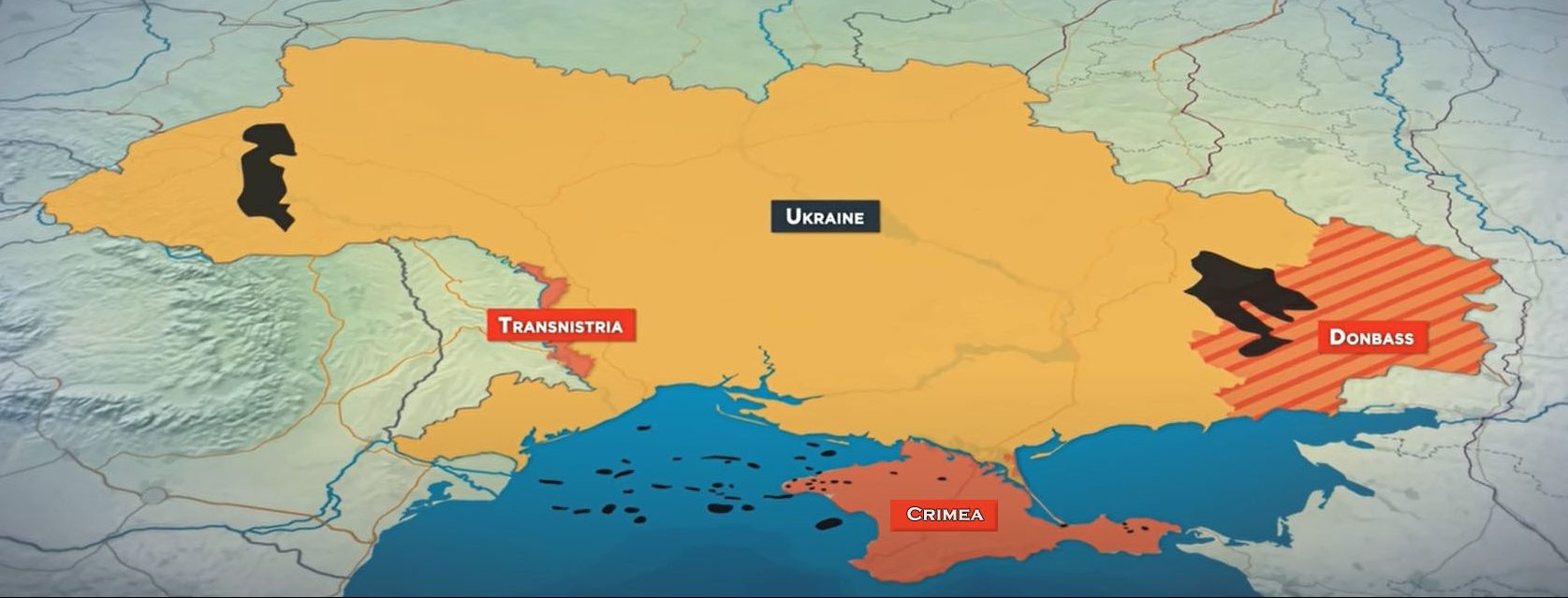
Everything that Russia has done thus far, ever since the discoveries of energy deposits, from the annexations of Crimea to backing the Russian-separatists in the Donbas regions, have been for the sake of ensuring that Ukraine doesn’t become the second petrol state on the European continent.
Because if such a development occurs, it will cause a massive decrease in Russia’s Gross Domestic Product (GDP) and its overall budget into domestic and military funding.
The Problem of Crimea
Crimea is almost an island, merely loosely connected to Europe. The country is a canvas of dry and arid terrain and salty marshes, which means that there is very little fresh water for people or agriculture.
Before Crimea’s annexation in 2014, 85% of its fresh water came from Ukraine through the North Crimea Canal from the Dnieper, but that was later cut off by Ukraine as they filled the dam with cement.
With climate change worsening matters for Crimea, the region is drying up faster than ever, and life has become much harder for the Crimeans.
Even though Russia has built the Kerch bridge to join Crimea to mainland Russia, diverting fresh water is still extremely difficult and costly, to the extent where it costs Moscow nearly $5 billion just to keep Crimea afloat.
And that is to say nothing of the western and European sanctions that have been placed on Crimea which has strangled its own economy further.
In 2020, Crimea faced its driest year in recorded history.
To shed light on just how dry Crimea is, its main reservoir Simferopol is only 7% full.
If Russia manages to occupy Ukraine, the fresh water problem can be solved by unblocking the dam.
Hence, another reason for the Russo-Ukraine War is a climate and water issue.
Conclusions
In summary, Ms Svitlana Krakovska isn’t wrong when she says that the Russo-Ukrainian War and climate change stem from the same roots.
In the end, it boils down to fossil fuels and energy resources.
The territorial invasion does have political and economic reasons.
The entire construction of historical pretext by President Putin is merely making a sellable narrative to the Russian people and the world, like it’s natural for Ukraine to be reclaimed.
But ever since the UN Charter has been founded, establishing the mutual respect for territorial integrity, independence, and sovereignty of any nation and country, such historical claims are no longer hold water.
And towards Dr Anisimov’s bravery for making that statement, we can only applaud him, and hope that nothing bad befalls him.
Read Also:
- Ukraine Reportedly Releasing Prisoners With Combat Experience to Fight Russia
- Video Showing Stranded Russian Soldiers Having a Friendly Chat With a Ukrainian Got Over 5 Million Views
- Ukraine Company Removing Road Signs So Russia Forces Will Lose Their Way
- 10 Facts About the Ukraine President Volodymyr Zelenskyy Who Was Once a Comedian
Featured Image: Shutterstock / Drop of Light




